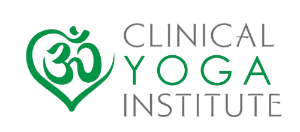In today’s fast-paced world, stress and anxiety have become increasingly common. Many people are turning to alternative therapies, such as yoga, to help manage these overwhelming feelings. Integrative yoga therapy is a holistic approach that combines traditional yoga practices with modern psychology and science to address both the physical and mental aspects of stress and anxiety.
Yoga has been practiced for thousands of years and is known for its ability to calm the mind, reduce tension in the body, and promote overall wellbeing. By incorporating yoga techniques into your daily routine, you can learn to manage stress and build resilience to anxiety.
One of the key components of integrative yoga therapy is mindfulness. Mindfulness involves being fully present in the moment, aware of your thoughts and feelings without judgment. This practice can help you become more attuned to your body’s signals and respond to stress in a more effective way. Incorporating mindfulness meditation into your yoga practice can help you relax your mind and cultivate a sense of inner peace.
Breathing exercises are another important aspect of integrative yoga therapy. Deep, mindful breathing can help calm the nervous system and reduce the physical symptoms of stress and anxiety, such as rapid heartbeat and shallow breathing. By focusing on your breath during yoga practice, you can learn to regulate your emotions and create a sense of calm and control.
Yoga poses, or asanas, also play a crucial role in managing stress and anxiety. Certain poses can help release tension in the body, improve circulation, and promote relaxation. Practicing gentle stretches and twists can help alleviate physical discomfort, while invigorating poses can boost energy levels and uplift your mood.
In addition to these physical benefits, yoga can also help you cultivate a sense of self-awareness and self-compassion. By tuning into your body and connecting with your breath, you can develop a deeper understanding of your emotions and patterns of behavior. This increased awareness can help you identify sources of stress and anxiety in your life and develop healthier coping mechanisms.
To incorporate yoga techniques into your daily routine, start by setting aside dedicated time for practice each day. Even just a few minutes of mindful breathing or gentle stretching can make a significant difference in how you feel. You can also attend yoga classes or workshops to deepen your practice and connect with a supportive community.
By integrating yoga techniques into your daily life, you can learn to manage stress and anxiety in a holistic and sustainable way. Integrative yoga therapy offers a powerful tool for cultivating resilience, finding inner peace, and promoting overall wellbeing. It’s time to take control of your mental health and embrace the healing power of yoga.
For more information visit:
Clinical Yoga Institute | Online Accredited Yoga Teacher Training
https://www.clinicalyogainstitute.com/
United States
Embark on your journey to become a certified clinical yoga practitioner with our evidence-based online yoga teacher training program. Tailored for mental healthcare professionals, our flexible learning schedule fosters a supportive community of like-minded peers. Earn 30.5 NASW CEUs as you progress towards becoming a skilled professional in clinical yoga.

